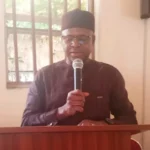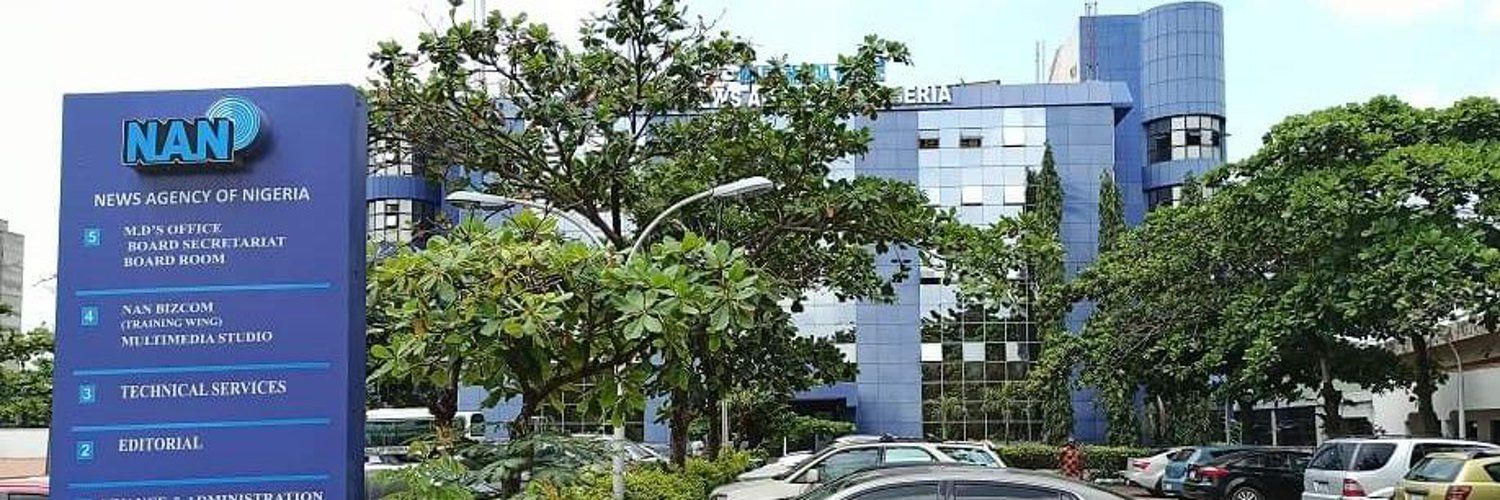By Chijioke Okoronkwo, News Agency of Nigeria (NAN)
On Oct. 3, the News Agency of Nigeria (NAN) debuted an annual international lecture in Abuja with national and Sahel security in focus.
The Inaugural lecture was novel, a departure from the agency’s timely delivery of factual and objective news, to igniting international conversations around security in Nigeria and the Sahel region.
It was an innovation brought to the fore with the zing and determination of Mr Ali Mohammed Ali, the new Managing Director of NAN, the support and commitment of the management team and central organising committee.
The inaugural lecture with the theme, “Insecurity in the Sahel (2008-2024): Dissecting Nigeria’s Challenges – Genesis, Impacts and Options” was organised as part of NAN’s contribution to addressing national and continental pressing issues of insecurity.
According to the Armed Conflict Location and Event Data Project (ACLED), extremist violence has surged across the Sahel; the first seven months of 2023 saw at least 7,800 civilian dead, a significant increase from 2022.
With the staggering number of fatalities in the Sahel region due to violent extremism, one cannot agree more on the imperative of this discourse.
For the benefit of hindsight, the Sahel, the vast semi-arid region of Africa separating the Sahara Desert to the north and tropical savannas, comprises Burkina Faso, Cameroon, Chad, The Gambia, Guinea, Mauritania, Mali, Niger, Nigeria and Senegal.
Declaring the inaugural lecture open, President Bola Tinubu, who was the Special Guest of Honour, said Nigerian armed forces had made commendable progress in the fight against terrorism, insurgency, banditry and other forms of violent crimes across the country.
Tinubu, who was represented by the National Security Adviser (NSA), Malam Nuhu Ribadu, reassured Nigerians of the government’s commitment to return the country on the path of stability through kinetic and non-kinetic approaches.
“We are beginning to restore order; we are beginning to get stability; we are beginning to have a new Nigeria. Nigeria is getting to be stable,” he said.
The president applauded NAN for the foresight in coming up with the lecture, saying that a secured Nigeria was also a secure Sahel region.
He said that fixing Nigeria’s challenges would ultimately translate into the other parts of the neighbouring countries facing challenges and difficulties.
“This lecture, organised by NAN, is, therefore, a worthy contribution to the ongoing debate to the body of knowledge on the nation’s security architecture and what prognosis to make going forward.
“There is no doubt that the insecurity in the Sahel is complex with deep roots in sundry causal factors such as climate change, food insecurity and extremism, which have created a ring of violence and instability in the region.
“In tackling our security challenges, our administration has adopted a multifaceted approach as enshrined in the renewed hope agenda, which prioritised security as a critical component of government focus.
“This administration, in the last one year, has put in place processes, policies and programmes to achieve improved security, economic development, and improve welfare for all Nigerians,” he added.
“To the terrorists and insurgents, I say surrender or face renewed onslaught of the military,’’ he said.
Weighing in on the theme, the Minister of Information and National Orientation, Mohammed Idris, who was the Chief Host, said that Nigeria was winning the war against terror and banditry
According to him, the government’s target is to eliminate all the threats of Boko Haram, banditry, kidnapping for ransom and the scourge of all forms of violent extremism.
“Within one year, our government has eliminated Boko Haram and bandit commanders faster than ever.
“As of the last count, over 300 Boko Haram and bandit commanders have been eliminated by our gallant troops in the Northeast, Northwest, and some other parts of the country.
“Indeed, this quote from the president has amplified the resolve and determination of this administration to address the security challenges confronting us.
“By understanding the root causes, evaluating the impact on our territorial integrity, and implementing strategic policy measures, we can effectively address the challenges posed by this crisis.
“The task ahead is daunting, but with determination, collaboration and a united effort, I am confident that we can safeguard Nigeria’s territorial integrity and contribute to the restoration of peace and stability in the Sahel region,” he said.
Idris commended NAN for standing tall in news gathering as well as its unwavering commitment to timely delivery of news.
Sharing similar sentiments, former Head of State, retired Gen. Abdulsalami Abubakar, identified poverty, unemployment, weak governance as some of the contributory factors heightening insecurity in the Sahel.
Abdulsalami, who was the Chairman of the occasion, said that climate change, environmental degradation, among other factors had provided fertile ground for insecurity to thrive in the region.
“At the heart of the insecurity in this region, among other factors, are the undercurrents of poverty and unemployment and the proliferation of small arms and light weapons.
“Others are weak governance and institutional failures, as well as climate change and environmental degradation.
“These factors have certainly created a fertile ground for insecurity to thrive, with devastating impacts on our dear nation.
“We must not, however, lose faith in our capacity to ride above the storms of insecurity, since this challenge is the business of each and every Nigerian, and indeed, all Africans,” he said.
According to him, the impact of the situation is devastating to Nigeria and the Sahel, and particularly stalling development.
The General bemoaned the enormous number of fatalities in the region between 2020 and 2021 due to violent extremism.
“Nigeria’s security challenges cannot be divorced from the regional heritage in the sahel, a vast landmass which encompasses the troubled countries of Burkina, Chad, Mali, and Cameroon.
“In the year 2020, a whopping 4,660 people were killed in this region, while another 2,600 civilians lost their lives in banditry attacks in 2021,” he said.
He expressed concern that insecurity was still lingering and required concerted efforts to address the situation.
He commended NAN for organising the lecture, saying it would elicit a productive and thought-provoking response to address the situation.
Abubakar said that the event would provide the platform for stakeholders to identify actors in the situation, identify root causes and proffer sustainable solutions.
In his submission, Dr Mohamed ibn Chambas, the African Union Chief Mediator on Sudan, re-echoed that weak governance and corruption were among factors fueling insecurity in the Sahel region.
Chambas, who was the Guest Lecturer, said military solutions alone would not address the problem.
According to him, weak governance and corruption create a conducive environment for insecurity.
He said the Sahel region was so vast that there were lots of ungoverned spaces in the zone, increasing the insecurity rate.
The AU chief also listed the crisis in Libya, Sudan, Mali, among other factors that could be attributed to the challenge.
Besides, he said, foreign interference and external forces equally explored the situation for their own interest.
Chambas, who said that the shrinking of the Lake Chad Basin had caused more harm than good in the Sahel region, added that attention should be given to cut off the financing and supply network of terror groups.
Chambas also said that Nigeria’s efforts to address farmers/herders crisis, especially the creation of the livestock ministry, are commendable.
He said that ECOWAS resisted the restriction of movement of people from the three member states that pulled out of the regional body – Nigeria, Mali and Burkina Faso.
Deserving no less attention, the Chief of Defence Staff (CDS), Gen. Christopher Musa, said that a multidimensional approach, beyond military intervention, was needed to address insecurity in the Sahel.
Musa said that the prevailing security threats in the Sahel region and other parts of Africa were targeting Nigeria because of its strategic importance in the region.
The defence chief said the Sahel had, in the last decade and half, become synonymous with instability, violence, and insecurity ranging from the rise of insurgent groups such as Boko Haram and ISWAP to the spread of violent extremism, human trafficking and illegal arms proliferation.
He said that while insecurity did not emerge in a vacuum, its roots could be traced to a combination of local and global factors.
According to him, the factors included, poor governance, economic marginalisation, climate change, ethnic tensions, and the spillover effects of conflicts in North Africa and the broader Middle East.
He stressed that the collapse of the Libyan state in 2011, further unleashed an influx of weapons and fighters, which catalysed the rise of militant groups across the Sahel.
“Nigeria, as a critical player in the region, has borne a significant share of the fallout from this instability,” he said.
The CDS said that insurgency in the North East, led by Boko Haram since 2009, had not only devastated communities but also stretched military resources, forced the displacement of millions, and undermined economic development.
According to him, the porous nature of Nigeria’s borders with Sahelian countries has made it easier for transnational criminals, including smugglers, human traffickers, and arms dealers, to operate with impunity.
“Nigeria has demonstrated resilience and determination in confronting these challenges.
“I encourage all stakeholders including government, civil society, international partners and the private sector to work collaboratively in addressing these challenges.
“Let us always remember that Nigeria’s security and that of the entire Sahel region depend on our ability to find lasting solutions that promote peace, stability, and prosperity for all,” he said.
What’s more, it is worthy of recall that the managing director of NAN had provided insights to the essence of the inaugural lecture.
Ali had said it was high time the agency charted a course on pathways to peace and economic prosperity in Africa.
He said the lecture was expected to interrogate the root causes of the violence troubling the Sahel.
He said that given its strategic importance in the last 48 years of existence, NAN, the largest news agency in Africa, must play a pivotal role in giving direction on political, economic and social issues.”
“Security is the basic; without security, a nation cannot make progress, there will be no economic and social development.
“We have seen it in the Northwest where bandits take front row seats, conducting their nefarious activity with impunity, without any fear of reprisals.
“Agriculture has been suffering in the Northeast where there is insurgency,’’ he said.
Meanwhile, perceptive stakeholders believe that the security threat in the Sahel region is huge and should be tackled with concerted efforts and a multi-faceted approach.
They say that the recommendations of NAN inaugural lecture, if implemented, will be helpful to Nigeria and the Sahelian governments in stamping out violent extremism in the region.(NANFeatures)
***If used, please credit the author and the News Agency of Nigeria (NAN)












